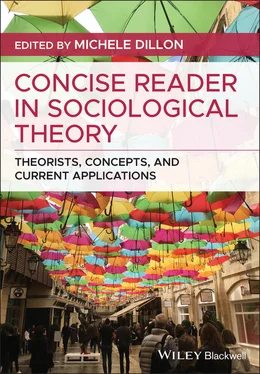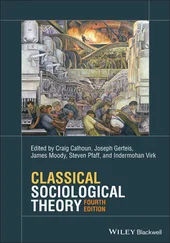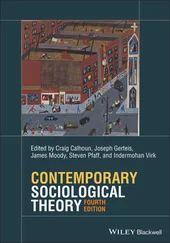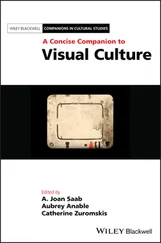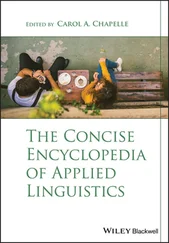But these reasons are purely secondary. Excessive individualism not only results in favoring the action of suicidogenic causes, but it is itself such a cause. It not only frees man’s inclination to do away with himself from a protective obstacle, but creates this inclination out of whole cloth and thus gives birth to a special suicide which bears its mark. This must be clearly understood for this is what constitutes the special character of the type of suicide just distinguished and justifies the name we have given it. What is there then in individualism that explains this result?
It has been sometimes said that because of his psychological constitution, man cannot live without attachment to some object which transcends and survives him, and that the reason for this necessity is a need we must have not to perish entirely. Life is said to be intolerable unless some reason for existing is involved, some purpose justifying life’s trials. The individual alone is not a sufficient end for his activity. He is too little. He is not only hemmed in spatially; he is also strictly limited temporally. When, therefore, we have no other object than ourselves we cannot avoid the thought that our efforts will finally end in nothingness, since we ourselves disappear. But annihilation terrifies us. Under these conditions one would lose courage to live, that is, to act and struggle, since nothing will remain of our exertions. The state of egoism, in other words, is supposed to be contradictory to human nature and, consequently, too uncertain to have chances of permanence.
In this absolute formulation the proposition is vulnerable. If the thought of the end of our personality were really so hateful, we could consent to live only by blinding ourselves voluntarily as to life’s value. For if we may in a measure avoid the prospect of annihilation we cannot extirpate it; it is inevitable, whatever we do. We may push back the frontier for some generations, force our name to endure for some years or centuries longer than our body; a moment, too soon for most men, always comes when it will be nothing. For the groups we join in order to prolong our existence by their means are themselves mortal; they too must dissolve, carrying with them all our deposit of ourselves. Those are few whose memories are closely enough bound to the very history of humanity to be assured of living until its death. So, if we really thus thirsted after immortality, no such brief perspectives could ever appease us. Besides, what of us is it that lives? A word, a sound, an imperceptible trace, most often anonymous, 1 therefore nothing comparable to the violence of our efforts or able to justify them to us. In actuality, though a child is naturally an egoist who feels not the slightest craving to survive himself, and the old man is very often a child in this and so many other respects, neither ceases to cling to life as much or more than the adult; indeed we have seen that suicide is very rare for the first fifteen years and tends to decrease at the other extreme of life. Such too is the case with animals, whose psychological constitution differs from that of men only in degree. It is therefore untrue that life is only possible by its possessing its rationale outside of itself.
Indeed, a whole range of functions concern only the individual; these are the ones indispensable for physical life. Since they are made for this purpose only, they are perfected by its attainment. In everything concerning them, therefore, man can act reasonably without thought of transcendental purposes. These functions serve by merely serving him. In so far as he has no other needs, he is therefore self‐sufficient and can live happily with no other objective than living. This is not the case, however, with the civilized adult. He has many ideas, feelings and practices unrelated to organic needs. The roles of art, morality, religion, political faith, science itself are not to repair organic exhaustion nor to provide sound functioning of the organs. All this supra‐physical life is built and expanded not because of the demands of the cosmic environment but because of the demands of the social environment. The influence of society is what has aroused in us the sentiments of sympathy and solidarity drawing us toward others; it is society which, fashioning us in its image, fills us with religious, political and moral beliefs that control our actions. To play our social role we have striven to extend our intelligence and it is still society that has supplied us with tools for this development by transmitting to us its trust fund of knowledge.
Through the very fact that these superior forms of human activity have a collective origin, they have a collective purpose. As they derive from society they have reference to it; rather they are society itself incarnated and individualized in each one of us. But for them to have a raison d'etre in our eyes, the purpose they envisage must be one not indifferent to us. We can cling to these forms of human activity only to the degree that we cling to society itself. Contrariwise, in the same measure as we feel detached from society we become detached from that life whose source and aim is society. For what purpose do these rules of morality, these precepts of law binding us to all sorts of sacrifices, these restrictive dogmas exist, if there is no being outside us whom they serve and in whom we participate? What is the purpose of science itself? If its only use is to increase our chances for survival, it does not deserve the trouble it entails. Instinct acquits itself better of this role; animals prove this. Why substitute for it a more hesitant and uncertain reflection? What is the end of suffering, above all? If the value of things can only be estimated by their relation to this positive evil for the individual, it is without reward and incomprehensible. This problem does not exist for the believer firm in his faith or the man strongly bound by ties of domestic or political society. Instinctively and unreflectively they ascribe all that they are and do, the one to his Church or his God, the living symbol of the Church, the other to his family, the third to his country or party. Even in their sufferings they see only a means of glorifying the group to which they belong and thus do homage to it. So, the Christian ultimately desires and seeks suffering to testify more fully to his contempt for the flesh and more fully resemble his divine model. But the more the believer doubts, that is, the less he feels himself a real participant in the religious faith to which he belongs, and from which he is freeing himself; the more the family and community become foreign to the individual, so much the more does he become a mystery to himself, unable to escape the exasperating and agonizing question: to what purpose?
If, in other words, as has often been said, man is double, that is because social man superimposes himself upon physical man. Social man necessarily presupposes a society which he expresses and serves. If this dissolves, if we no longer feel it in existence and action about and above us, whatever is social in us is deprived of all objective foundation. All that remains is an artificial combination of illusory images, a phantasmagoria vanishing at the least reflection; that is, nothing which can be a goal for our action.
[…]
In normal conditions the collective order is regarded as just by the great majority of persons. Therefore, when we say that an authority is necessary to impose this order on individuals, we certainly do not mean that violence is the only means of establishing it. Since this regulation is meant to restrain individual passions, it must come from a power which dominates individuals; but this power must also be obeyed through respect, not fear.
It is not true, then, that human activity can be released from all restraint. Nothing in the world can enjoy such a privilege. All existence being a part of the universe is relative to the remainder; its nature and method of manifestation accordingly depend not only on itself but on other beings, who consequently restrain and regulate it. Here there are only differences of degree and form between the mineral realm and the thinking person. Man’s characteristic privilege is that the bond he accepts is not physical but moral; that is, social. He is governed not by a material environment brutally imposed on him, but by a conscience superior to his own, the superiority of which he feels. Because the greater, better part of his existence transcends the body, he escapes the body’s yoke, but is subject to that of society.
Читать дальше
